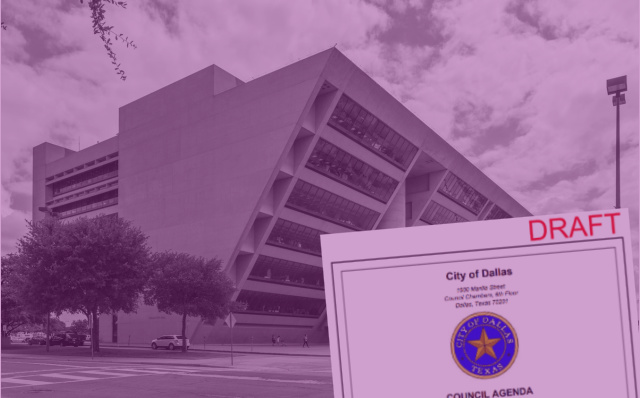
In another busy week at Dallas City Hall, council members made a significant move on the spending front, and a stalled homeless housing site has finally made its way back on the market. Read about all that below, and also make sure to get the heads up on some important meetings coming up.
Officials Empower City Staff To Authorize Bigger Contracts
The Dallas City Council voted 10-5 on Wednesday to let City Manager Kimberly Tolbert approve bigger contracts without council approval to speed up routine business involving vendors.
Before the changes in policy, staff could execute on contracts valued at up to $100,000. Now, they can sign for goods and services valued at up to $300,000 and spending related to architecture and construction projects valued at up to $500,000. Bidding will also only be required for contracts valued over $100,000, up from $50,000.
Opponents of the measure included Council Member Cara Mendelsohn (District 12), who said the policy change constituted “a major shift in how we govern.”
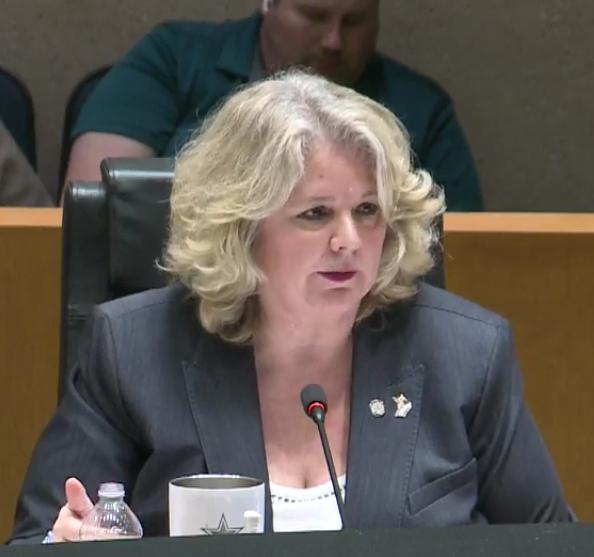 Cara Mendelsohn
Cara Mendelsohn
“It reduces transparency. It weakens accountability, and it cuts the public out of the process,” she argued. “Every contract approved by the city council is subject to open debate and public comment. Removing that step removes the residents’ opportunity to see how their tax dollars are being spent and to hold us accountable for those decisions.”
The majority of council members disagreed, arguing instead that the changes would streamline approvals for small-scale projects like park upgrades and traffic light repairs and minimize delays.
 Adam Bazaldua
Adam Bazaldua
“I don’t love the narrative that … this is a permission slip for staff to go rogue or that this takes away from our ability to be effective elected officials because it’s just not accurate,” Council Member Adam Bazaldua (District 7) said.
At a $300,000 threshold for goods and services, council members would have reviewed 65.8% of contracts accounting for 98.7% of total contract spending over the past two years. For architecture, engineering, and construction services, a $500,000 threshold would have resulted in council members reviewing 61.9% of contracts representing 97.9% of total contract spending, according to a memo.
Mayor Eric Johnson, Mendelsohn, and Council Members Jesse Moreno (District 2), Bill Roth (District 11), and Paul Ridley (District 14) voted against the policy change.
Hampton Road Homeless Housing Project Site Gets Put Out to Pasture… Errr… Put On the Market
In a move that highlights both the city’s hard-to-manage real estate portfolio and struggles with solutions to homelessness, officials put 2929 S Hampton Rd. on the market.
The property used to be the site of the old University General Hospital in Oak Cliff. The city bought it in 2022 for $6.5 million, intending to convert it for homeless housing and wraparound services. But after a few years of community pushback and no progress, officials decided to throw in the towel.
2929 S Hampton Rd. comprises almost 122,000 square feet on roughly 14 acres of land.
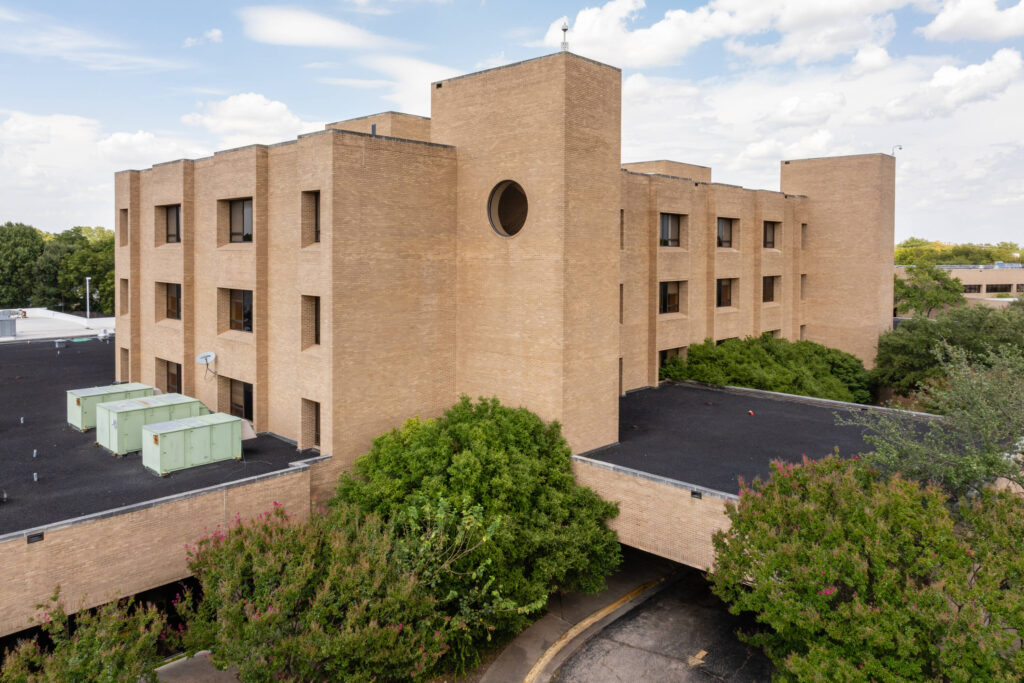 2929 Hampton Rd.
2929 Hampton Rd.
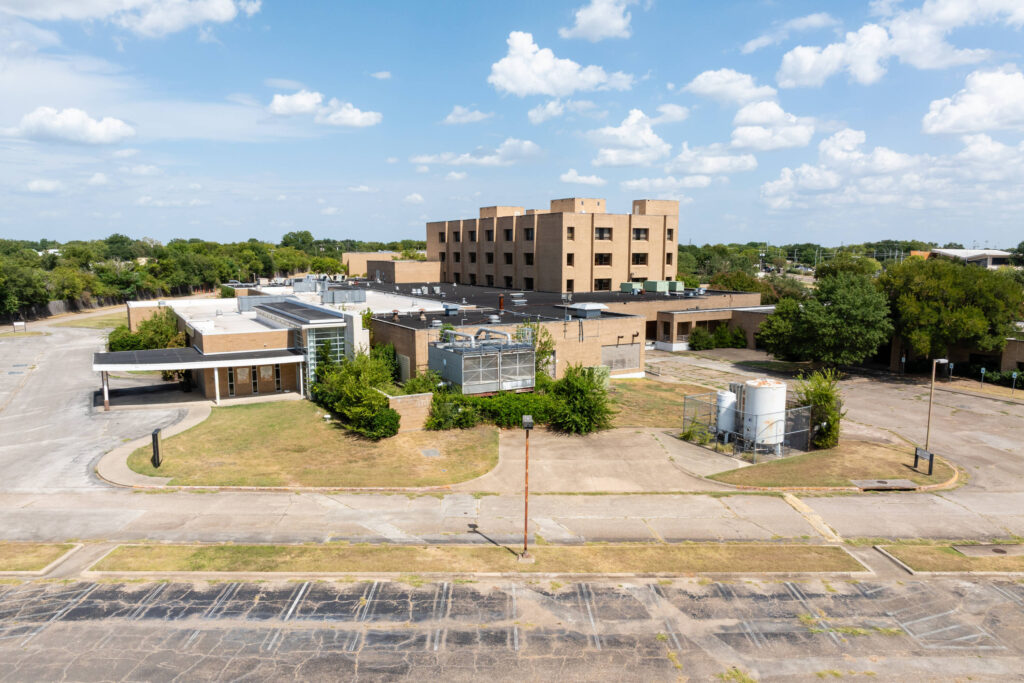
“The property is zoned via PD 128 which allows for a variety of uses such as medical and office. Forward Dallas 2.0 land use plan designates the site with City Residential place type which calls for primary uses for Multiplex, apartments, and mixed-use. Supporting uses include, Single Family, Lodging, Commercial, and Office,” a market description reads.
Officials want to recoup the taxpayer money they put into buying the site. Council Member Zarin Gracey (District 3), who represents the area where the old medical facility is located, said he’d like the proceeds to go into a different homeless housing initiative in his district.
Oak Lawn’s Rainbow Crosswalks Are in the Governor’s Crosshairs
Per Gov. Greg Abbott’s orders, the Texas Department of Transportation informed cities and counties this week that all pavement markings on public roads must follow state and federal traffic control standards. This means no non-standard markings — like the rainbow crosswalks in Oak Lawn. Jurisdictions have 30 days to remove or modify the markings on pain of contract suspensions with TxDOT and the withholding of state and federal funds.
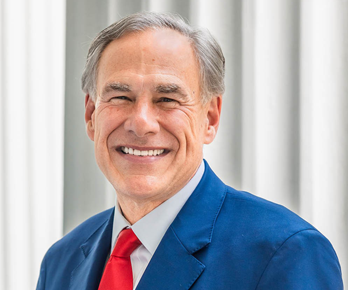 Greg Abbott
Greg Abbott
“Texans expect their taxpayer dollars to be used wisely, not advance political agendas on Texas roadways,” Abbott said. “Today, I directed the Texas Department of Transportation to ensure Texas counties and cities remove any and all political ideologies from our streets. To keep Texans moving safely and free from distraction, we must maintain a safe and consistent transportation network across Texas.”
Council Member Paul Ridley (District 14), who represents the Oak Lawn community, slammed Abbott’s order:
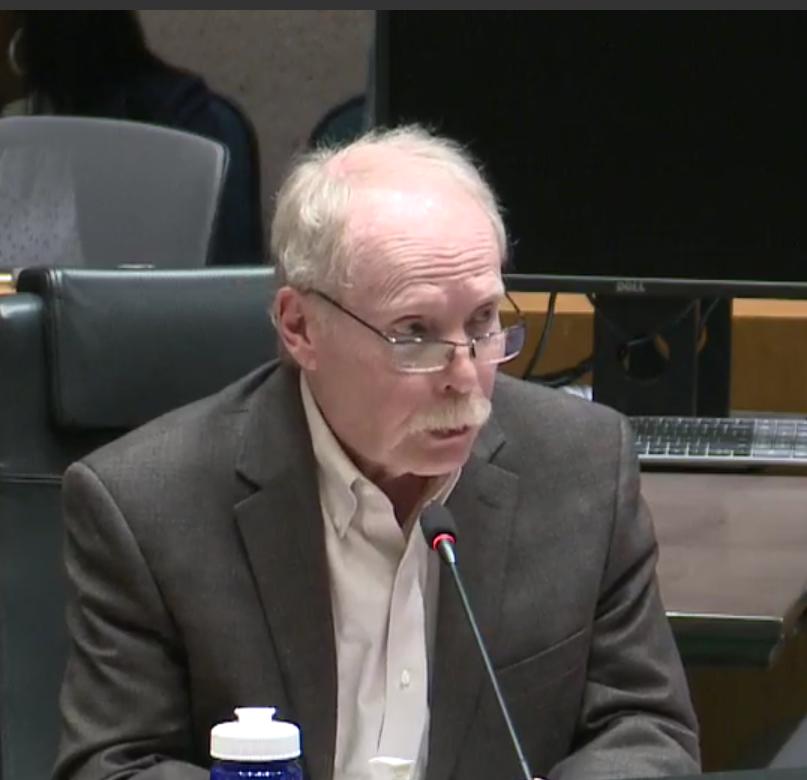 Paul Ridley
Paul Ridley
“The idea that these crosswalks are a safety concern is unsupported and highly questionable. The real argument Abbott is using against these crosswalks is that they insert ‘ideology’ into public spaces, using taxpayer dollars (untrue in the case of the rainbow crosswalks in Dallas). This is a bit hypocritical. Isn’t Abbott’s law requiring that the 10 Commandments be displayed in all public schools in Texas the same thing? The LGBTQ+ community in particular is being targeted to score political points, inflame divisions and please a political base, and it’s just not right.”
City staff said in a memo that Transportation & Public Works would be reviewing Dallas infrastructure to identify any possible exceptions to the directive.
Meetings Coming Down the Pipeline
Officials on the city’s new Finance Committee will begin discussions on the fate of Dallas City Hall on Oct. 22.
Needed repairs for the iconic brutalist landmark are stacking up, so much so that officials might try to offload their base of operations. Council Member Chad West (District 1), the committee’s chair, recently spoke with Inside Texas Politics about the situation.
“I would say that it is right now on life support. And it needs a lot to come back to the health that it needs to be a functional City Hall where we can conduct business in a proper environment without mold, without leaking parking garages that, literally, have waterfalls of water coming down every time it rains and to avoid the continued pipe bursts that we see in the building,” he said.
The Parks, Trails & Environment Committee will be briefed on a proposed amendment to the development code that would reconfigure the formula determining parkland dedication fees on Nov. 3.
Parkland dedication fees are fees that real estate developers pay to help fund parks and green spaces when they build new residential developments. Instead of requiring developers to set aside land for parks within their projects, they can pay a fee, which goes toward acquiring land or improving existing parks nearby.
Critics of the controversial proposal to basically slash the fee in half claim it could significantly undermine the city’s ability to acquire land for new parks. Proponents, however, argue that multifamily developers would have less in costs to pass on to renters amid the state’s housing affordability crisis.
